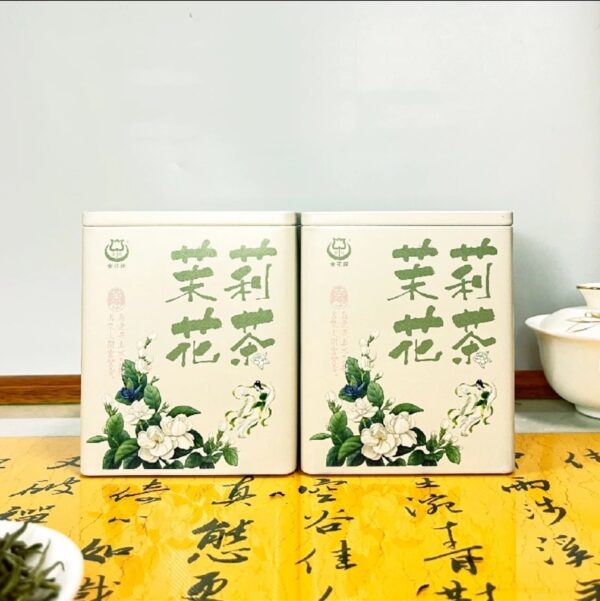
# Jasmine Tea: A Fragrant Journey Through Tradition and Flavor
The Origins of Jasmine Tea
Jasmine tea, with its delicate floral aroma and soothing taste, has been cherished for centuries in Chinese culture. This fragrant beverage traces its roots back to the Song Dynasty (960-1279 AD), when tea artisans in Fujian province began experimenting with scenting tea leaves with fresh jasmine blossoms. The process was perfected over generations, creating what we now know as one of the world’s most beloved floral teas.
The Art of Scenting
Creating authentic jasmine tea is a labor-intensive process that requires precision and patience. High-quality green tea leaves serve as the base, typically varieties like Dragon Pearl or Bi Luo Chun. Fresh jasmine flowers are harvested during their peak blooming season (usually summer evenings) when their fragrance is most potent.
The traditional scenting process involves:
- Layering tea leaves with fresh jasmine blossoms
- Allowing the flowers to impart their fragrance overnight
- Removing the spent blossoms the next morning
- Repeating the process multiple times (up to seven for premium grades)
Health Benefits of Jasmine Tea
Beyond its delightful taste, jasmine tea offers numerous health benefits:
Antioxidant Properties
The combination of green tea and jasmine provides powerful antioxidants that help combat free radicals in the body.
Stress Relief
The soothing aroma of jasmine has been shown to have calming effects, potentially reducing anxiety and promoting relaxation.
Digestive Aid
Jasmine tea can help stimulate digestion and may relieve stomach discomfort after meals.
Brewing the Perfect Cup
To fully appreciate jasmine tea’s delicate flavors:
Keyword: jasmine tea
- Use fresh, filtered water heated to 175-185°F (80-85°C)
- Steep for 2-3 minutes (longer for stronger flavor)
- Enjoy plain to appreciate the natural sweetness
- Re-steep leaves 2-3 times to discover evolving flavors
Cultural Significance
In Chinese tradition, jasmine tea symbolizes purity and grace. It’s often served during important occasions and used in tea ceremonies. The tea’s popularity spread along trade routes, becoming particularly beloved in Western countries during the 19th century.
Today, jasmine tea continues to captivate tea enthusiasts worldwide, offering a fragrant bridge between ancient tradition and modern enjoyment. Whether sipped for its health benefits, cultural significance, or simply its delightful taste, jasmine tea remains a timeless treasure in the world of tea.